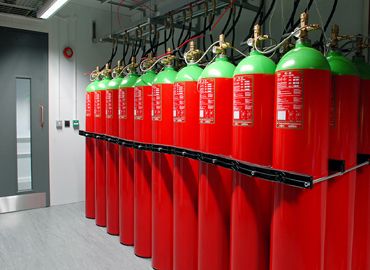A fire protection system is an important component of a building’s safety plan, regardless of whether it’s a commercial facility, hospital or educational facility. Without a fire protection system, the lives of those who are inside the building are placed at a high risk in the event an emergency. That’s why passive fire protection systems have been designed to help protect the building and its occupants during a fire.
Passive Fire Protection uses systems that do not require any motion or action in order to work. Fire and Smoke Dampers prevent the spread of flames and smoke through the ductwork of a facility. Fire Walls/Barriers as well as Fire Doors, if kept shut, help contain the fire to one specific location of the building. Photoluminescent Egress Path Marking Systems and Exit Signs will continue to glow in smoky conditions, allowing people to navigate their way to safety.

Ultimately these systems compartmentalize a building into sections to help contain and slow the spread of the fire and smoke, while helping to guide occupants safely out of danger. But to ensure that a building and everyone inside will be completely protected, it needs to have both passive and active fire protection systems.
Active Fire Protection uses systems that do require a certain amount of motion or action in order to work properly. These systems use some amount of actions to notify of the fire and smoke conditions, help slow the growth of the fire or to help put out the fire altogether.
Examples:
1. Fire Alarm Systems2. Sprinkler Systems
3. Fire Extinguisher/Hydrant
4. Firefighters
As you can see, a building’s fire protection system plays an important role in providing the building and its occupants with protection in the event of a fire. Each system approaches the threat differently, but is critical to the integrity of the building and the safety of those inside. However, in order for these systems to work properly they need to be maintained and kept up-to-date with the latest fire safety code. If you are not sure which Building/Fire Codes have been adopted in your hometown, check with your local Fire Marshal or Authorities Having Jurisdiction (AHJ's).
